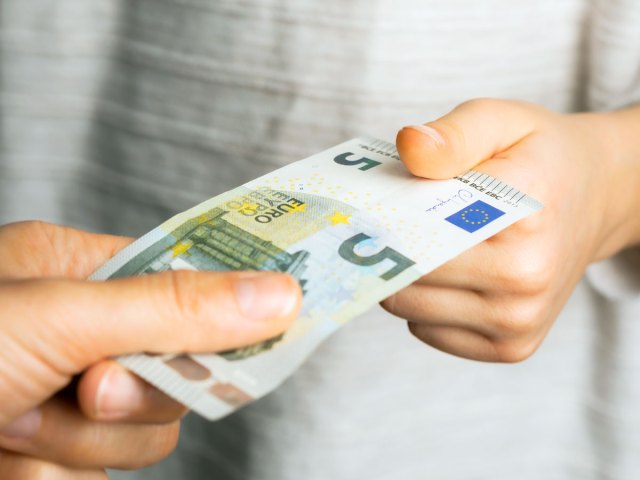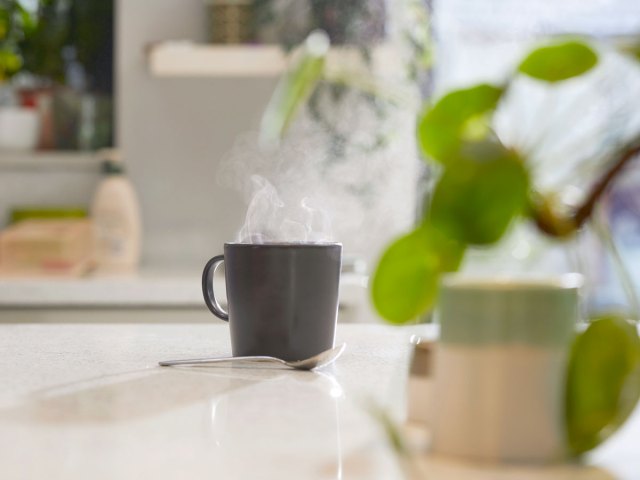Anyone who’s visited the U.K. can tell you the differences between American and British English can be vast — so much that it might seem you’re not speaking the same language at all. When it comes to casual slang, the Brits have words to describe everything from your mood to your friends to your drinking habits, but many of them may sound peculiar to American ears. So, if you want to really blend in with the locals on your next trip, start by learning these popular British slang terms you might hear in shops, museums, restaurants, and definitely pubs.
Chuffed

To be chuffed is a good thing — it means to be happy or otherwise pleased, particularly if taken by surprise. The word first appeared in British dialect in 1860, from the now-obsolete “chuff,” a word that emerged in the 1520s and meant “swollen with fat.” There’s a similar American idiom of “fat and happy” — to be chuffed isn’t far off.
I didn’t think you’d be able to make it to the wedding, but I’m chuffed to see you!
Gutted
“Gutted” is the polar opposite of “chuffed.” It describes the feeling of being terribly upset. While Americans often think of “gutted” in a more literal sense — such as the way one guts a fish to prepare it for eating — the British use this word in a metaphorical way. The OED points to roots in British prison slang, and it was first cited in Jonathon Green’s Dictionary of Contemporary Slang in 1984.
I’m gutted to have to leave our vacation early because of the weather.
Bare
“Bare” is an intensifier, effectively meaning “very” or “many” — similar to “hella” in the U.S. It originally came from Jamaican influences, but has worked its way into many British dialects.
I stayed up all night, and now I’m bare tired.
Quid
The currency of the U.K. is the pound, but shoppers are likely to hear cashiers give their total in quids. The slang replacement for “pound” appeared in the 1680s, possibly from the Latin quid, meaning “that which is, essence,” as used in quid pro quo, a Latin phrase indicating an exchange of value.
Can I borrow a few quid for lunch? I left my wallet at home.
Fiver or Tenner

Two of the most commonly used denominations of currency are the £5 and £10 notes (£ is the symbol for the pound). These are colloquially known as fivers and tenners. (However, the award for most creative currency nicknames goes to the Canadians, who use “loonie” and “toonie” to refer to their dollar and two-dollar coins.)
This bloke tried to charge me a tenner, but I gave him a fiver and ran.
Knackered
Pronounced “NACK-urd,” this word means “worn out” or “exhausted.” You can be knackered (physically exhausted), or an item can be so knackered (worn out), it just needs to hit the bin (British slang for a trash can). The roots of this slang are in agriculture — the earliest usage of “knacker/nacker” is from a harness-maker who probably also helped with other horse health-related matters. By the 1880s, people began describing themselves as knackered, to suggest that they felt as tired as an old, sick horse.
After that gym session, I’m completely knackered. Those shoes are knackered, mate. You need to get a new pair.
Kip

The answer to feeling knackered is to take a kip, or a nap. This word can also be used as a verb, as in, “I kipped properly last night.” “Kip” further carries a connotation of sleeping somewhere other than your own bed, related to the Danish kippe, or “tavern.”
Can I grab a kip in your room in between my classes this afternoon?
Reckon
To reckon is to suspect or have a theory about something. This word has made the journey from Great Britain to the American South, where it maintains the thoughtful usage.
I reckon it’s going to rain today, and my team’s going to lose.
Bloody
In British slang, “bloody” is a mild expletive. It’s used to express anger, annoyance, shock, or simply emphasis — for example, “Oh, bloody hell!” According to etymologists, “the use of bloody to add emphasis to an expression is of uncertain origin, but is thought to have a connection with the ‘bloods’ (aristocratic rowdies) of the late 17th and early 18th centuries.” While it’s a bit impolite, its usage is so common that it’s become generally acceptable in modern British English.
We’re going to have a bloody good time this weekend!
Cheeky

A bit of cheekiness is a quintessential part of British life. It can be hard to nail down a definition of “cheeky,” but one that comes close is “endearingly rude.” Being cheeky is often cute, but it can be taken the wrong way, so pay attention to context.
Your son was very cheeky and grabbed a cookie off my plate when I wasn’t looking.
Proper
“Proper” is a tough one to define concretely, because the British use it so frequently to describe many different things. In general, it’s used as an alternative to “very” or “extremely,” but to do something properly also means to do it correctly or in the right way. One might say, “That’s a proper good cup of tea,” meaning that not only is it very good, but it’s also prepared in the accepted manner.
You played a proper match today!
Mate

In the U.S., “mate” is often thought of in the sense of a romantic partner, but for Brits, it’s more casual. It can be used affectionately to mean “friend,” and it’s also used more informally when referring to or addressing strangers.
Johnny has been my best mate since university. I take sugar in my coffee, mate.
Plastered, Trolleyed, Pissed, Battered, or Gazeboed
It’s often said that language reflects culture. Inuits have many words for snow, and Arabic has myriad words for sand. In Britain, they have a huge volume of words for being drunk. Add “-ed” to any number of nouns or verbs, and your mates will understand you mean “drunk.”
After fours hours in the pub, I was completely cauliflowered.
Cuppa

Playing right into the stereotype, Brits really do love tea. So much so, in fact, that “cup of tea” has been shortened to “cuppa.” You don’t need to clarify what’s in your cup, because everyone already knows it’s tea.
I had a lovely cuppa with my biscuits.
Dodgy
To describe something as dodgy suggests that it’s suspicious or otherwise questionable — the word might be used to characterize a car salesman’s tactics, for example. It could also refer to food that seems like it’s spoiled. “Dodgy” comes from the verb “to dodge,” which appeared in the 1680s to mean “to evade (something) by a sudden shift of place.” This context of sly, quick movement ultimately led to the modern verb definition, which implies an intent “to swindle, to play shifting tricks with,” leading to the “shifty” adjective. So, if a deal seems a bit dodgy, or too good to be true, listen to your gut.
Mate, this kebab seems a bit dodgy.
A version of this article originally appeared in our sister publication, Word Smarts.
More from our network
Daily Passport is part of Inbox Studio, an email-first media company. *Indicates a third-party property.
















